Your search “Keep%20the%20death%20penalty%abolished%20in%20the%20ePhilippfines%20e%20e%20e%20e%20e%20e%20e%20e%20e%20e/page/www.deathpenaltyindia.com/img/pages/resources/20e17Statistics.pdf ”
Document(s)
Capital punishment and implementation of the safeguards guaranteeing protection of the rights of those facing the death penalty
By United Nations , on 26 May 2021
2021
United Nations report
aresfrruzh-hantMore details See the document
Summary
In its resolution 1745 (LIV) of 16 May 1973, the Economic and Social Council invited the Secretary-General to submit to it, at five-year intervals starting from 1975, periodic updated and analytical reports on capital punishment. The Council, in its resolution 1995/57 of 28 July 1995, recommended that the quinquennial reports of the Secretary-General continue to cover also the implementation of the safeguards guaranteeing protection of the rights of those facing the death penalty.
In the same resolution, the Council requested the Secretary-General, in preparing the quinquennial report, to draw on all available data, including current criminological research. The present report, which is the tenth quinquennial report, contains a review of the use of and trends in capital punishment, including the implementa tion of the safeguards during the period 2014–2018.
In accordance with resolutions 1745 (LIV) and 1990/51, of 24 July 1990, of the Economic and Social Council, as well as its decision 2005/247 of 22 July 2005, the present report is submitted to the Council at its substantive session of 2020, and will also be before the Commission on Crime Prevention and Criminal Justice at its twenty-ninth session and the Human Rights Council at its forty-fourth regular session.
The report on the 2014–2018 quinquennium confirms the trend documented in previous reports towards abolition and restriction of the use of capital punishment in most countries. The number of States that have abolished the death penalty in law and in practice continued to grow. This is reflected in the increased number of States bound by treaty obligations not to implement the death penalty. The quinquennium also witnessed some years of dramatic increases in the number of executions, which were carried out by a small number of States. The situation stabilized at the end of the survey period, and the number of recorded executions in the final year, 2018, was the lowest in many years. The safeguards guaranteeing the protection of the rights of those facing the death penalty apply to States that retain capital punishment. It is of concern, however, that the death penalty continued to be imposed on persons below 18 years of age at the time of commission of the offence, and that death sentences were imposed in cases where the “most serious crimes” standard was not met and in cases of trials that did not comply with international standards.
- Document type United Nations report
- Available languages عقوبة اإلعدام وتنفيذ الضمانات التي تكفل حماية حقوق من يواجهون عقوبة اإلعدامLa pena capital y la aplicación de las salvaguardias para garantizar la protección de los derechos de las personas condenadas a la pena de muertePeine capitale et application des garanties pour la protection des droits des personnes passibles de la peine de mortСмертная казнь и применение мер, гарантирующих защиту прав тех, кому грозит смертная казнь死刑和保护死刑犯权利的保障措施的执行情况
Document(s)
Efforts towards abolition of the death penalty: Challenges and prospects
By Death Penalty Research Unit (DPRU), University of Oxford, on 5 February 2024
2024
Academic Article
Trend Towards Abolition
More details See the document
Published in December 2023.
This paper reflects on the role of international human rights treaties in promoting universal abolition and progressive restriction of the death penalty. It suggests that over the past quarter of a century a ‘new human rights dynamic’ has aimed to generate universal acceptance that however it is administered, the death penalty violates the human rights of all citizens exposed to it. Nevertheless, defences of capital punishment based on principles of national sovereignty are engrained in some parts of the world, particularly in Asia and the Middle East. The human rights project struggles to make inroads into such jurisdictions where political will is opposed to abolition, and trenchant protection of sovereignty threatens the very universality of these rights.
- Document type Academic Article
- Themes list Trend Towards Abolition
Document(s)
Facts and Figures 2011
By World Coalition against the death penalty , on 10 October 2011
2011
Campaigning
Trend Towards Abolition
frMore details Download [ pdf - 100 Ko ]
Facts and Figures 2011
- Document type Campaigning
- Themes list Trend Towards Abolition
- Available languages Faits et chiffres 2011
Document(s)
Facts and Figures 2009
By World Coalition against the death penalty , on 10 October 2009
2009
Campaigning
Trend Towards Abolition
frMore details Download [ pdf - 95 Ko ]
Facts and Figures 2009
- Document type Campaigning
- Themes list Trend Towards Abolition
- Available languages Faits et chiffres 2009
Document(s)
Facts and Figures 2010
By World Day against the death penalty , on 10 October 2010
2010
Campaigning
Trend Towards Abolition
frMore details Download [ pdf - 81 Ko ]
Facts and Figures 2010
- Document type Campaigning
- Themes list Trend Towards Abolition
- Available languages Faits et chiffres 2010
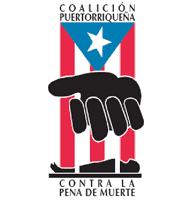
Member(s)
Puerto Rican Coalition Against Death Penalty
on 30 April 2020
The Puerto Rican Coalition against the Death Penalty (PCADP) is a non-party, non-sectarian organisation incorporated in Puerto Rico in March 2005 to promote the elimination of the capital punishment.The PCADP aims to join efforts among the different abolitionist organisations and activists in Puerto Rico. Its Statement of Principles emphasises that it does not believe in […]
2020
Puerto Rico

Member(s)
Association Justice et Miséricorde (AJEM)
on 30 April 2020
The Association Justice and Mercy (AJEM) is a Lebanese nonprofit, nonpolitical and nonsectarian nongovernmental organization (NGO) created in 1996 at the initiative of a group of social workers. AJEM deals mainly with the right of prisoners in Lebanon, and more generally with human rights, the fight against torture and other cruel, inhuman and degrading treatment, […]
Lebanon
Document(s)
Death Penalty in India – Annual Statistics Report 2021
By Project 39A, on 4 February 2022
2022
Academic report
India
More details See the document
Project 39A at the National Law University, Delhi published the sixth edition of the Death Penalty in India: Annual Statistics Report which provides an annual update on the use of the death penalty in India along with legislative and international developments on the issue. As on 31st December 2021, there were 488 prisoners on death row across India (a steep rise of nearly 21% from 2020), with Uttar Pradesh having the highest number at 86. This is the highest the death row population has been since 2004 as per the data from the Prison Statistics published by the National Crime Records Bureau.
- Document type Academic report
- Countries list India
Document(s)
Co-Sponsorship, Note Verbale, and Association Behaviour at the Unga: An Analysis of the Death Penalty Moratorium Resolutions
By Daniel Pascoe & Sangmin Bae, on 22 April 2021
2021
Academic report
Moratorium
More details See the document
Since December 2007, seven resolutions in favour of a universal moratorium on death penalty executions have been adopted by the UN General Assembly. In an earlier paper (Pascoe and Bae 2020) we examined UN member states’ voting patterns over these seven resolutions, asking why some countries vote in a manner seemingly contradictory to their domestic death penalty practices. With a slightly different focus, we now further explore idiosyncratic state behaviour, this time through an analysis of co-sponsorship and the note verbale of dissociation. Our assumption is that states which plan to vote ‘yes’ in the plenary will also co-sponsor the resolution beforehand. We also presume that states which vote ‘no’ in the plenary will sign the note verbale invariably circulated several months later, as a further means of condemnation.
However, when it comes to the moratorium resolutions, not all member states fit into either of these binary categories. Many countries situate themselves in between the two groups of ‘genuine’ supporters and opponents. These countries in the middle evince inconsistency between their plenary votes and what we term their ‘association behaviour’ before or after the plenary, consisting of co-sponsorship and adherence to the note verbale. This paper analyses these groups of countries to determine the underlying causes for their ambivalent, or even contradictory, positions concerning the moratorium resolutions. The findings of this research stand to enrich not only the academic literature on international organizations, but also to inform the campaigning efforts of abolitionist UN member states and non-governmental organizations.
- Document type Academic report
- Themes list Moratorium
Document(s)
Anti–Death Penalty Advocacy: A Lawyer’s View from Australia
By Julian McMahon SC, on 1 September 2022
2022
Article
Australia
More details See the document
This article reviews the executions of Australians in the region and the Australian responses over the past two decades. Informed by the author’s legal defence role in death penalty cases in Singapore and Indonesia and other countries, the article explores developments in anti–death penalty advocacy since 2015: the parliamentary enquiry, the ‘whole of government’ strategy led by the Department of Foreign Affairs and Trade and the efforts made by Australia and Australians in Asia.
This article was first published in Crime Justice Journal: https://www.crimejusticejournal.com/issue/view/119
- Document type Article
- Countries list Australia
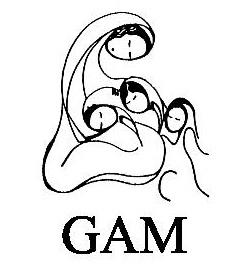
Member(s)
Grupo de Apoyo Mutuo (GAM)
on 30 April 2020
Mandate and goals: Organization of relatives of missing persons illegally detained which works for justice, investigating past cases, opening legal proceedings against the national system and the human rights system. Kind of actions: We work for justice, for the strengthening of the institutions linked to the criminal investigation and against the death penalty. Actions aiming […]
2020
Guatemala

Member(s)
Reprieve
on 30 April 2020
Reprieve is a small, feisty registered charitable organisation of human rights defenders. Our strategy is to use strategic interventions to end the use of the death penalty globally, and to end extreme human rights abuses carried out in the name of “counterterrorism” or “national security” We work for among the most disenfranchised people in society, […]
United Kingdom
Document(s)
Death Penalty in India: Annual Statistics Report 2017
By NLU Delhi , on 1 January 2017
2017
NGO report
More details See the document
- Document type NGO report
- Themes list Death Row Conditions, Legal Representation, Death Penalty, Statistics,

Member(s)
Citizens United for Rehabilitation of Errants (CURE)
on 30 April 2020
Citizens United for Rehabilitation of Errants (CURE) is a grassroots organization that was founded in Texas in 1972. It became a national organization in 1985. CURE believes that prisons should be used only for those who absolutely must be incarcerated and that those who are incarcerated should have all of the resources they need to […]
2020
United States
Document(s)
Singapore’s death penalty for drug trafficking: What the research says and doesn’t
By Academia SG - Promoting Scorlorahsip Of/For/By Singapore, on 24 January 2024
2024
Academic report
Drug Offenses
Singapore
More details See the document
Published on October 7, 2023.
Of all retentionist countries, Singapore seems to be the most vocal about the need to execute individuals as a form of criminal punishment. MAI SATO (Monash University) reviews studies conducted or commissioned by Singapore’s Ministry of Home Affairs that claim public backing for and the effectiveness of the death penalty in managing drug trafficking. Sato finds that these studies provide far weaker evidence for using the death penalty for drug trafficking than their authors and officials citing them claim.
- Document type Academic report
- Countries list Singapore
- Themes list Drug Offenses
Document(s)
A/HRC/48/L.17/Rev.1 Resolution adopted by the Human Rights Council
on 2 June 2021
2021
International law - United Nations
aresfrruzh-hantMore details See the document
- Document type International law - United Nations
- Available languages A/HRC/48/L.17/Rev.1 قرار اعتمده جملس حقوق اإلنسايفA/HRC/48/L.17/Rev.1 Resolución aprobada por el Consejo de DerechosA/HRC/48/L.17/Rev.1 Résolution adoptée par le Conseil des droits de l’hommeA/HRC/48/L.17/Rev.1 Резолюция, принятая Советом по правам человекаA/HRC/48/L.17/Rev.1 人权理事会 月 日通过的决议
Document(s)
Facts and Figures 2022
By the World Coalition Against the Death Penalty, on 24 June 2022
2022
World Coalition
frMore details Download [ pdf - 241 Ko ]
Find the main facts and figures regarding the death penalty worldwide in 2021 and early 2022.
- Document type World Coalition
- Available languages Faits et chiffres 2022
Document(s)
21st World Day – Facts and Figures 2023
By the World Coalition Against the Death Penalty, on 12 June 2023
2023
Campaigning
World Coalition
frMore details Download [ pdf - 239 Ko ]
Find the main facts and figures regarding the death penalty worldwide in 2022 and early 2023.
- Document type Campaigning / World Coalition
- Available languages 21ème Journée Mondiale - Faits et chiffres 2023
Document(s)
Leaflet – World Day 2023
on 12 June 2023
Campaigning
World Coalition
arfrMore details Download [ pdf - 1095 Ko ]
Leaflet for the 21th World Day against the death penalty (2023), on torture and the death penalty.
- Document type Campaigning / World Coalition
- Available languages كتيب - اليوم العالمي 2023Brochure - Journée mondiale 2023
Document(s)
DPIC Special Report: The Innocence Epidemic
By Death Penalty Information Center, on 20 July 2022
2022
NGO report
Innocence
United States
More details See the document
A Death Penalty Information Center Analysis of 185 Death-Row Exonerations Shows Most Wrongful Convictions Are Not Merely Accidental.
- Document type NGO report
- Countries list United States
- Themes list Innocence
Member(s)
Mouvance des Abolitionnistes du Congo Brazzaville
on 30 April 2020
Mandate and Objectives: – Promote fundamental human rights : LIFE , EDUCATION, ACCESS TO WATER AND ELECTRICITY – Making human rights in daily lives – Fighting for universal abolition of the death penalty, starting in Congo Brazzaville by a national moratorium Types of action: – Exhibitions and screenings – Lectures, discussion and citizen petition, Sit-in […]
2020
Congo
Document(s)
Estimating the effect of death penalty moratoriums on homicide rates using the synthetic control method
By Stephen N. Oliphant, on 18 September 2022
2022
Academic report
Moratorium
United States
More details See the document
Research examining death penalty deterrence has been characterized as inconclusive and uninformative. The present analysis heeds a recommendation from prior research to examine single-state changes in death penalty policy using the synthetic control method. Data from the years 1979–2019 were used to construct synthetic controls and estimate the effects of death penalty moratoriums on homicide rates in Illinois, New Jersey, Washington, and Pennsylvania. Moratoriums on capital punishment resulted in nonsignificant homicide reductions in all four states.
- Document type Academic report
- Countries list United States
- Themes list Moratorium
Document(s)
Facts and Figures 2008
By World Coalition against the death penalty , on 10 October 2008
2008
Campaigning
Trend Towards Abolition
frMore details See the document
Facts and Figures 2008
- Document type Campaigning
- Themes list Trend Towards Abolition
- Available languages Faits et chiffres 2008
Document(s)
Facts and Figures 2013
on 10 October 2013
2013
Campaigning
Trend Towards Abolition
aresMore details Download [ pdf - 115 Ko ]
Facts and Figures world day against the death penalty 2013
- Document type Campaigning
- Themes list Trend Towards Abolition
- Available languages Faits et chiffres 2013PENA DE MUERTE HECHOS Y DATOS
Document(s)
American Death Penalty Exceptionalism, Then and Now
By Jordan Steiker, California Western International Law Journal , on 1 February 2024
2024
Academic Article
United States
More details See the document
Published in October 2023.
The most commonly observed fact of American capital punishment is its present outlier status: the United States (U.S.) is the only developed Western democracy that retains the death penalty, and it does so not simply as a matter of law, but as a matter of practice, conducting numerous executions every year. This “exceptionalism” with respect to the death penalty is noteworthy, but focusing on present-day American retention obscures many additional aspects of American death penalty exceptionalism. This Keynote will trace several ways in which the American death penalty was an outlier at its founding and throughout its subsequent history, as well as the varied aspects of its exceptionalism today. I will conclude by predicting that U.S. exceptionalism will soon come to an end–with an “exceptional” form of death penalty abolition, traceable to the distinctive path of the American death penalty
- Document type Academic Article
- Countries list United States
Document(s)
Extrajudicial, summary or arbitrary executions
By United Nations General Assembly, on 5 August 2022
2022
United Nations report
More details See the document
To mark the fortieth anniversary of the establishment of the mandate on extrajudicial, summary or arbitrary executions, the Special Rapporteur on extrajudicial, summary or arbitrary executions, Morris Tidball-Binz, offers a reflection from a historical perspective on the establishment of the mandate and the subsequent evolution of its working methods. He retraces the development of international standards and guidelines elaborated with the substantial contribution and support of the various mandate holders. The report also contains an analysis of the question of the death penalty from the perspective of whether it is compatible with the absolute prohibition of torture or other cruel, inhuman or degrading treatment or punishment and recommendations aimed at ensuring the protection of the right to life, as guaranteed under international human rights instruments.
- Document type United Nations report

Member(s)
Free Mumia! French Support Group
on 30 April 2020
Founded in 1995, the French collective “Libérons Mumia” brings together about a hundred organisations and public authorities: human rights associations, trade unions, political parties, local and regional collectives and local authorities. His objective is to obtain a new trial allowing the Black American journalist Mumia to defend his innocence and regain his freedom. Mumia Abu-Jamal […]
2020
France
Document(s)
‘Upholding the Cause of Civilization’: The Australian Death Penalty in War and Colonialism
By Mark Finnane, on 1 September 2022
2022
Academic report
Australia
More details See the document
The abolition of the death penalty in Queensland in 1922 was the first in Australian jurisdictions, and the first in the British Empire. However, the legacy of the Queensland death penalty lingered in Australian colonial territories. This article considers a variety of practices in which the death penalty was addressed by Australian decision-makers during the first half of the 20th century. These include the exemption of Australian soldiers from execution in World War I, use of the death penalty in colonial Papua and the Mandate Territory of New Guinea, hanging as a weapon of war in the colonial territories, and the retrieval of the death penalty for the punishment of war crimes. In these histories, we see not only that the Queensland death penalty lived on in other contexts but also that ideological and political preferences for abolition remained vulnerable to the sway of other historical forces of war and security.
This article was first pubished in Crime Justice Journal: https://www.crimejusticejournal.com/issue/view/119
- Document type Academic report
- Countries list Australia
Document(s)
Ripoti Ya Kimataifa Ya Amnesty International Hukumu Za Kifo Na Watu Walionyongwa 2022
By Amnesty International, on 16 May 2023
2023
NGO report
More details See the document
Utafiti wa Amnesty International kuhusu matumizi ya adhabu ya kifo mwaka wa 2022 ulionyesha kwambakulikuwa na ongezeko kubwa la idadi ya watu wanaojulikana kuwa walinyongwa duniani, likiwemo ongezekokubwa la watu walionyongwa kutokana na makosa yanayohusiana na dawa za kulevya
- Document type NGO report
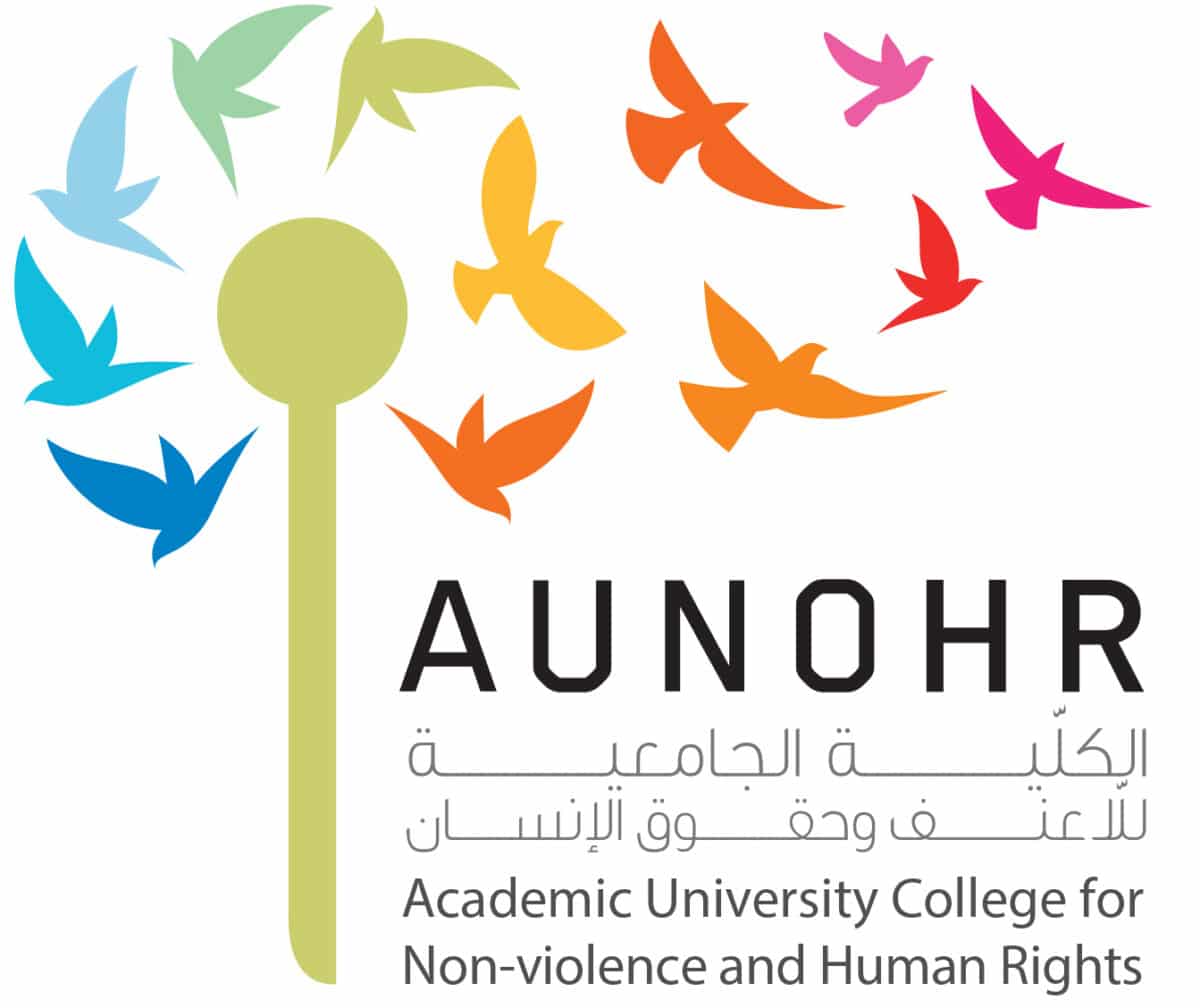
Member(s)
Academic University for Non-Violence and Human Rights – AUNOHR
on 14 July 2023
AUNOHR, www.aunohr.edu.lb, the Academic University for Non-Violence and Human Rights, is a non-profit independent institution of higher education, first-of-its-kind in Lebanon and the region and unique worldwide. Founded in 2014 after a pilot project (2009-2011), its main objectives are both: academic professionalism and for social change, starting with the personal development of every student. The […]
2023
Lebanon
Document(s)
Pathways to abolition
By Death Penalty Worldwide / Cornell Law School, on 1 January 2016
2016
Academic report
More details See the document
This report documents the processes by which 14 jurisdictions abolished the death penalty in law. The conclusions attempt to identify patterns and draw conclusions in the hope that they will provide ideas, insights and inspiration to countries that either already are on their path to abolition or yet have to embark on it.
- Document type Academic report
- Themes list Trend Towards Abolition, Country/Regional profiles,
Article(s)
167 Ugandan death row inmates saved from gallows
on 19 September 2010
Recent figures show that a January ruling by the Ugandan supreme court making it illegal to keep people on death row for more than three years has saved 167 lives.
2010
Cruel, Inhuman and Degrading Treatment and Punishment
Uganda
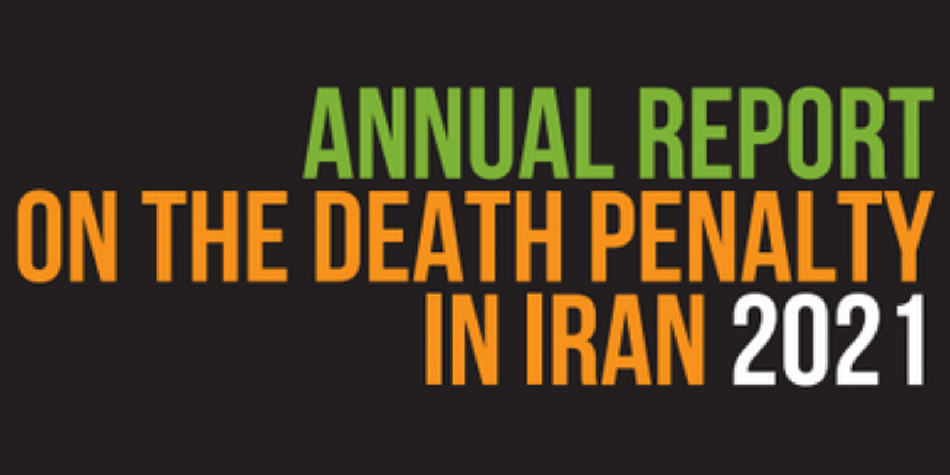
Article(s)
Death Penalty in Iran: Sharp Increase in Executions
By Anissa Aguedal, on 10 June 2022
An alarming situation On 28 April 2022, Iran Human Rights (IHR) and Ensemble contre la peine de mort (ECPM) released their 14th Annual Report on the Death Penalty in Iran, revealing an increase in the number of executions in 2021. At least 333 people were executed and 83,5% of these executions were not announced by […]
2022
Iran (Islamic Republic of)

Article(s)
Improved access to unique global death penalty library
By Thomas Hubert, on 10 July 2014
The World Coalition has redesigned its online library to help visitors find the documents they need in its multilingual database of resources and campaigning tools on capital punishment.
2014
Clemency
Cruel, Inhuman and Degrading Treatment and Punishment
Death Row Conditions
Drug Offenses
Fair Trial
Innocence
Intellectual Disability
Juveniles
Legal Representation
Mental Illness
Moratorium
Murder Victims' Families
Public Opinion
Terrorism
Women

Member(s)
International Organization for Diplomatic Relations
on 30 April 2020
The International Organization for Diplomatic Relations (IODR), also known as “Correspondants Diplomatiques” intends to promote alliance and cultural cooperation through the exchange of documents, the organization of conferences, concerts, and events of various kinds, and publications. It promotes solidarity between people and individuals and the full realization of the basic rights of man, as inspired […]
2020
Malta
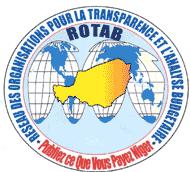
Member(s)
ROTAB
on 30 April 2020
The Organisation for Transparency and Budgetary Analysis (ROTAB – Publish What You Pay Niger) is a group of several associations, NGOs and unions in Niger who decided to take part in the worldwide campaign Publish What You Pay. This initiative calls for transparency in the extraction industry, at a time when the murky nature of […]
Niger
Document(s)
The Defense Team in Capital Cases
By Jill Miller / Hofstra Law Review, on 1 January 2003
2003
Article
United States
More details See the document
Fairness for those defendants facing the ultimate punishment of death requires that they be afforded zealous advocacy by competent counsel, and that counsel be provided with the resources necessary to effectively represent their clients. Stating that “[o]ur capital system is haunted by the demon of error, error in determining guilt, and error in determining who among the guilty deserves to die,” Governor Ryan cited many deficiencies in the justice system in Illinois, including poor lawyering and inadequate resources for defense counsel, in arriving at his decision to commute all death sentences. Over the years the imposition of the death penalty has too often been a function of unqualified counsel or counsel who lacked the resources, including time, funding, and provision of investigative, expert and supportive services, to competently represent their clients, rather than a reasoned decision based on the circumstances of the crime and the background and character of the defendant.
- Document type Article
- Countries list United States
- Themes list Legal Representation,
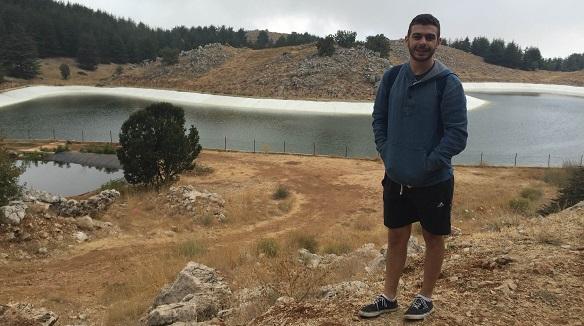
Article(s)
If I do not accept that a terrorist kills me, I do not accept either to kill a terrorist
By Tiziana Trotta, on 18 October 2016
Khachig Ghosn is a 22-year-old student of social work at the Lebanese University. Three years ago, he witnessed an explosion in Beirut. Despite this dramatic experience, he is against the use of the death penalty and he is convinced that capital executions have no deterrent effect on terrorism.Ghosn is aware that changes in his country take a very long time, but he has a positive long-term vision and hopes that the death penalty will be abolished.
2016
Lebanon
Murder Victims' Families
Terrorism
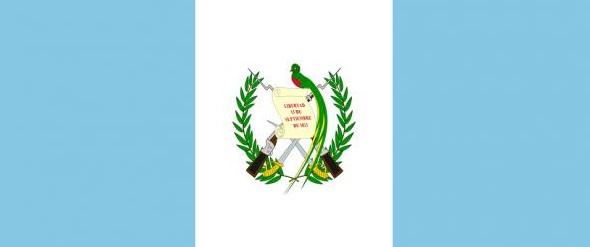
Article(s)
Guatemala abolishes the death penalty for ordinary crimes
By World Coalition Against the Death Penalty, on 31 October 2017
On October 24, the Constitutional Court of Guatemala has abolished the death penalty in civil cases.
2017
Guatemala
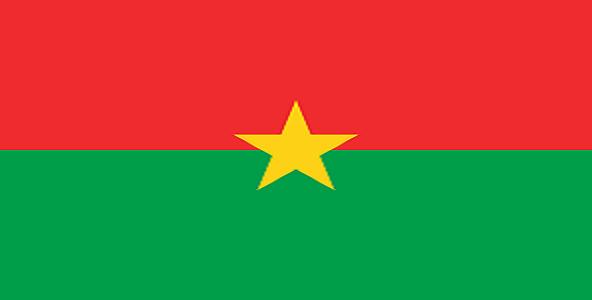
Article(s)
Burkina Faso has joined the global trend toward abolition of the death penalty in Africa
By International Federation of Human Rights (FIDH), on 6 June 2018
On 31 May, the Burkinabe Parliament abolished the death penalty by adopting a new criminal code that excludes it from the arsenal of sentences regardless of crimes considered and circumstances in which they were committed. Thus, Burkina Faso become the 144th States in the World and the 40th African State abolitionist in law and in practice. Our organizations welcome this major step which strengthens the Burkinabe legal framework for the protection of human rights and is part of regional and international movement in favour of the abolition of this inhuman, ineffective and irreversible punishment.
2018
Burkina Faso
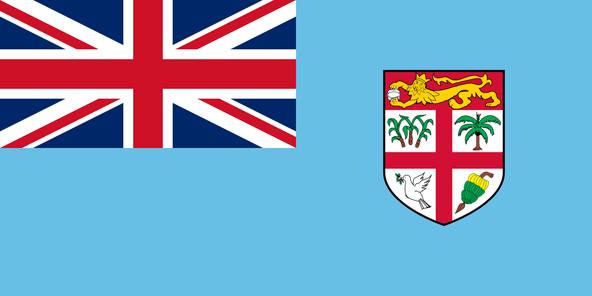
Article(s)
Fiji abolishes death penalty for all crimes through amendment to military law
By Auréie Plaçais, on 23 February 2015
On 9 February 2015, Attorney General Aiyaz Sayed-Khaiyum introduced in parliament the Republic of Fiji Military Forces amended Bill 2015, a one page bill to abolish the death penalty provision.
2015
Fiji

Member(s)
Comité des Observateurs des Droits de l’Homme (CODHO)
on 30 April 2020
On 1 July 1997 a group of lawyers, economists and political scientists from the Democratic Republic of Congo (DRC) held a meeting following the massacre of children by militiamen in North Kivu in the east of the country. Revolted by this unspoken tragedy, they decided to set up the Committee of Human Rights Monitors (Codho). […]
2020
Democratic Republic of the Congo
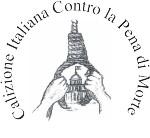
Member(s)
Coalizione italiana contro la pena di morte
on 30 April 2020
The Italian Coalition to Abolish the Death Penalty (ICADP) was established to form a network between both Italian and foreign groups, associations, movements, and individuals that oppose capital punishment, and to coordinate their work and efforts. The ICADP holds talks about the death penalty around the world, spreads information and promotes campaigns. It is especially […]
Italy
Page(s)
Newsletter
on 22 June 2020
With our monthly newsletter, make sure that you do not miss out on the latest information on the abolition of the death penalty. Subscribe to receive the latest articles published on the site, new documents available in the library as well as the agenda of our members. You can also sign up for our quarterly […]
2020

Member(s)
Comitato Paul Rougeau
on 30 April 2020
Paul Rougeau was sentenced to death in Texas for the murder of an off-duty policeman. He always maintained he was innocent. In 1992, after he had spent 15 years on death row, the Italian newspaper Il Manifesto printed a letter by Paul Rougeau on its front page. A group of Italian citizens then decided to […]
2020
Italy
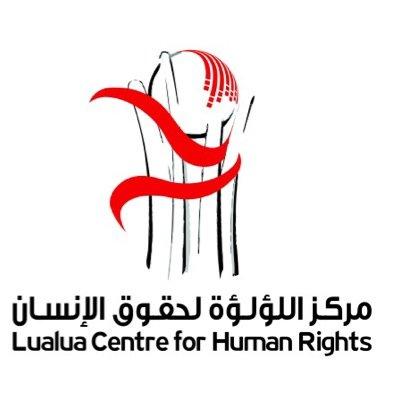
Member(s)
Lualua Center for Human Rights
on 30 April 2020
The objectives of Lualua Center for Human Rights are: 1- To contribute in the promotion of economic, social, cultural, environmental and civil growth according to the international declaration of human rights and subsequent relevant international conventions. 2- To work on achieving integrity and transparency and fighting corruption. To enshrine the concept of citizenship by promoting […]
Lebanon

Member(s)
Collectif des Organisations des Jeunes Solidaires (COJESKI)
on 30 April 2020
The Collectif des organisations des jeunes solidaires du Congo-Kinshasa RDC [Collective of Youth Solidarity Organisations in Congo-Kinshasa DRC, COJESKI-RDC] is a platform consisting of 340 youth organisations which has been operating in Congo-Zaire since 1995. Its main aim is to promote and defend positive human values, sustainable development and good governance of the Democratic Republic […]
Democratic Republic of the Congo

Member(s)
Foundation for Human Rights Initiative (FHRI)
on 30 April 2020
The Foundation for Human Rights Initiative (FHRI) is an independent, non-governmental organisation aiming to enhance the knowledge, respect and observance of human rights in Uganda. FHRI’s objective is to remove obstacles to democratic development. The organisation defends the fundamental freedoms enshrined in the 1995 Ugandan Constitution and other internationally recognised human rights instruments. FHRI undertakes […]
Uganda

Member(s)
Prison Insider
on 30 April 2020
Prison Insider is a French independent NGO. Prison Insider’s main mission is to raise awareness about the conditions of detention and to promote the rights and dignity of people deprived of liberty, everywhere in the world. To reach its aims, the organisation primarily operates an information website. Prison Insider’s vocation is to make available and […]
France
Document(s)
(Not) Talking about Capital Punishment in the Xi Jinping Era
By Tobias Smith, Matthew Robertson and Susan Trevaskes, on 1 September 2022
2022
Academic report
China
More details See the document
An investigation into the death penalty in the People’s Republic of China in the Xi Jinping era (2012–) shows that unlike previous administrations, Xi does not appear to have articulated a signature death penalty policy. Where policy in China is unclear, assessing both the quality and frequency of discourse on the topic can provide evidence regarding an administration’s priorities.
This article was first published in Crime Justice Journal: https://www.crimejusticejournal.com/issue/view/119
- Document type Academic report
- Countries list China
Document(s)
Legislative Expansion and Judicial Confusion: Uncertain Trajectories of the Death Penalty in India
By Anup Surendranath and Maulshree Pathak, on 1 September 2022
Academic report
India
More details See the document
The numbers and the politics of the death penalty in India tell very different stories, presenting complicated narratives for its future. The public reaction to instances of sexual violence and other offences over the last decade and the consequent political response has significantly strengthened the retention and expansion of the death penalty. This is reflected from the fact that that of all the death sentences that district courts impose, only about 5 percent get confirmed in India’s appellate system. However, does this mean there is growing scepticism about the death penalty in the Supreme Court of India? Unfortunately, the answer is far from simple. An assessment of the death penalty in India’s appellate courts during the last decade will demonstrate that a crime-centric approach has hindered any principled discomfort with the death penalty or the manner of its administration. In particular, the Supreme Court has faltered in high-profile death sentence cases (i.e., offences against the state and sexual violence cases), and its track record of commutations has very little to do with principled considerations on sentencing. This paper argues that the political and judicial imagination of the death penalty, as a necessary part of the response to crime, creates significant and unique challenges for the path towards abolition.
This article was first published in Crime Justice Journal: https://www.crimejusticejournal.com/issue/view/119
- Document type Academic report
- Countries list India
Document(s)
جماربو حنِملاو ق
By She was convicted for infanticide in 1895 and became the only woman ever hanged in New Zealand. He was a young lad from Bluff who was shot for desertion in World War I. Now Minnie Dean and Victor Spencer share their stories with you—just hours before their planned executions by the state., on 1 January 2013
2013
Working with...
More details Download [ - 0 Ko ]
يق |ناسنلإا قوقحل ةيماسلا ةدحتملا مملأا ةيضوفم بتكم / | |2013||externe | | http://www.ohchr.org/Documents/AboutUs/CivilSociety/OHCHRFundsGuide_ar.pdf|OHCHR-2013|Academic report|International law, Networks, |
en12671|OHCHR Practical Guide for Civil Society: Human Rights Funds, Grants and Fellowships|This Practical Guide – the fourth in the series of practical guides for civil society – provides a brief description of funding sources, grants and fellowships administered by or with the participation of the Office of the United Nations High Commissioner for Human Rights (OHCHR). |Office of the United Nations High Commissioner for Human Rights / | |2013||externe | | http://www.ohchr.org/Documents/AboutUs/CivilSociety/OHCHRFundsGuide_en.pdf|OHCHR-2013|Academic report|International law, Networks, |
en12670|Fighting for Their Lives: Inside the Experience of Capital Defense Attorneys|How do attorneys who represent clients facing the death penalty cope with the stress and trauma of their work? Through conversations with twenty of the most experienced and dedicated post-conviction capital defenders in the United States, Fighting for Their Lives explores this emotional territory for the first time|Susannah Sheffer / Vanderbilt University Press / | |2013|United States|externe | | http://www.susannahsheffer.com/fighting-for-their-lives.html||Book|Country/Regional profiles, |
en12669|Invers Theatre Company presents A Cry Too Far From Heaven”
- Document type Working with...
- Themes list Academic report
Document(s)
Death Penalty India Report – Volume 2
By Anup Surendranath / National Law University, New Delhi Press, on 8 September 2020
2020
NGO report
India
More details See the document
This project sought to answer questions regarding the socio-economic profile of prisoners sentenced to death in India while looking into the process of death sentencing in itself. By means of meaningful statistics and case studies, this report manages to enlighten some aspects of the death penalty in India which are generally not fully explored and triggers a sociological discussion on these thorny issues that goes beyond the legal analysis of Supreme Court judgments.Chapters:6) Experience in custody7) Trial and appeals8) Living on death row9) Seeking mercy10) ImpactLink to Volume 1: http://www.worldcoalition.org/resourcecentre/document/id/1462890615
- Document type NGO report
- Countries list India
- Themes list Discrimination, Country/Regional profiles,
Document(s)
Death Penalty India Report – Volume 1
By Anup Surendranath / National Law University, New Delhi Press, on 8 September 2020
NGO report
India
More details See the document
This project sought to answer questions regarding the socio-economic profile of prisoners sentenced to death in India while looking into the process of death sentencing in itself. By means of meaningful statistics and case studies, this report manages to enlighten some aspects of the death penalty in India which are generally not fully explored and triggers a sociological discussion on these thorny issues that goes beyond the legal analysis of Supreme Court judgments.Chapters:1) Coverage of the project2) Durations on death row3) Nature of crimes4) Socio-economic profile5) Legal assistanceLink to Volume 2: http://www.worldcoalition.org/resourcecentre/document/id/1463669874
- Document type NGO report
- Countries list India
- Themes list Discrimination, Country/Regional profiles,
Document(s)
Briefing Paper on the death penalty in Middle East & North Africa
By Penal Reform International, on 8 September 2020
Academic report
More details See the document
NGO coalition report submitted to the Office of the United Nations High Commissioner on Human Rights
- Document type Academic report
Article(s)
Abolition in the US: what role for overseas activists?
on 3 February 2008
As part of its 2008 annual conference, the National Coalition to Abolish the Death Penalty (NCADP) organised a brainstorming session to explore the question: “How can the international community support us in our efforts to abolish the death penalty in the US?”
2008
Clemency
Public Opinion
United States
Article(s)
World Congress ends with words of hope
on 28 February 2010
Powerful words by the speakers of the solemn ceremony that concluded the 4th World Congress Against the Death Penalty gave hope to the participants as they prepared to head home.
2010
Switzerland
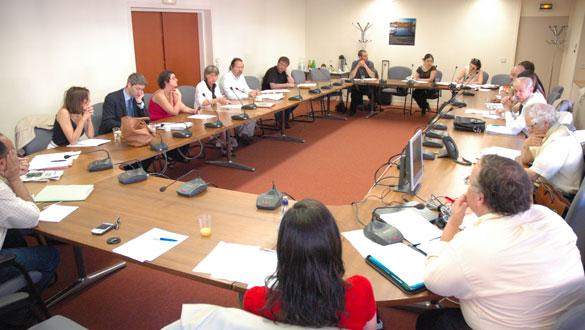
Article(s)
Statutes of the World Coalition Against the Death Penalty
on 26 June 2011
Amended by the General Assembly on June 26, 2011
2011
Article(s)
Youths must stand up against the death penalty!
on 17 September 2007
The Federation of Liberal Students (FEL), a Belgian political organisation, has just joined the World Coalition. FEL president Arnaud Van Praet explains his organisation’s mobilisation against capital punishment.
2007
Belgium
Article(s)
World Day campaign launched!
on 13 August 2007
The countdown to the fifth World Day Against the Death Penalty on October 10 has begun. It will focus on the proposed resolution against capital punishment to be discussed in the UN this autumn.
2007
Moratorium
Article(s)
Global outrage at Iranian juvenile execution
on 6 May 2009
Human rights organisations and governments worldwide have slammed the Iranian authorities for the illegal execution of Delara Darabi, a young woman convicted of a murder committed when she was 17.
2009
Innocence
Iran (Islamic Republic of)
Juveniles
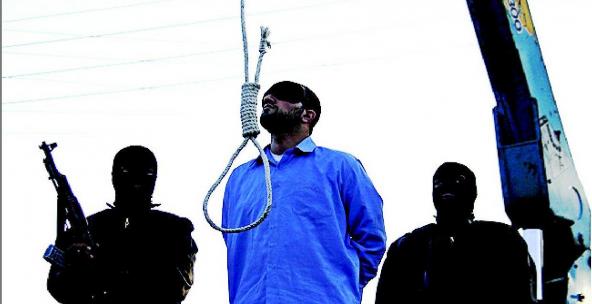
Article(s)
Highest execution numbers in Iran in 10 years
By Mahmood Amiry-Moghaddam, on 13 March 2012
Iran Human Rights has published its annual report on the death penalty in Iran in 2011. IHR’s international spokesperson Mahmood Amiry-Moghaddam says the Iranian authorities are keeping the number of executions high because they use the death penalty as a political tool.
2012
Drug Offenses
Iran (Islamic Republic of)
Juveniles
Women
Article(s)
State-sponsored report finds California’s death penalty is “dysfunctional”
on 9 July 2008
A recent report from a far-reaching commission established by the Californian senate on the administration of capital punishment in the state concluded that “the system is broken”.
2008
Innocence
United States
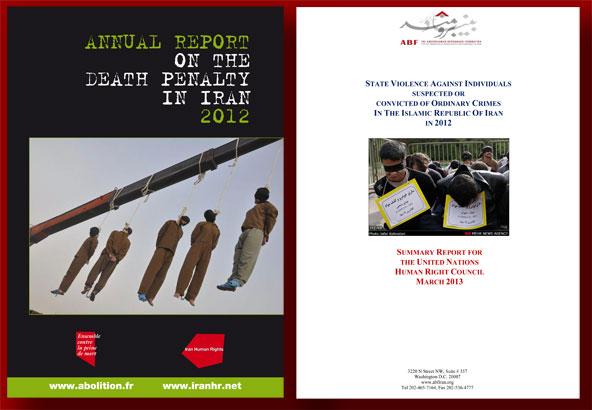
Article(s)
“Iran kills for possession of less than 50g of drugs”
By Thomas Hubert, on 9 April 2013
Annual reports published by two World Coalition member organizations of Iranian exiles expose the disproportionate use of the death penalty in Iran, mostly against drug users and traffickers.
2013
Drug Offenses
Iran (Islamic Republic of)
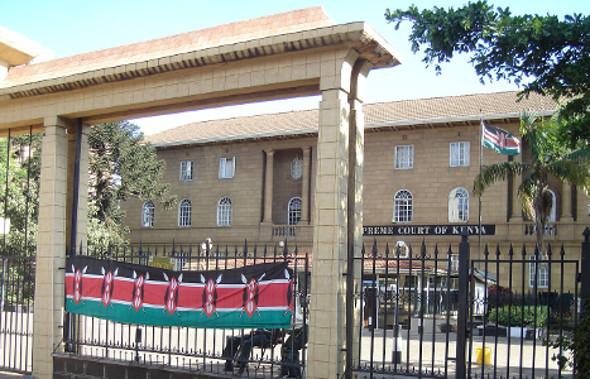
Article(s)
The Supreme Court of Kenya declares the mandatory death penalty unconstitutional
By Thalia Gerzso, on 23 January 2018
On December 14, 2017, the Supreme Court of Kenya declared the mandatory death penalty unconstitutional. This landmark decision puts an end to several years of uncertainties and constitutes an additional step towards the abolition of the death penalty in the country.
2018
Kenya
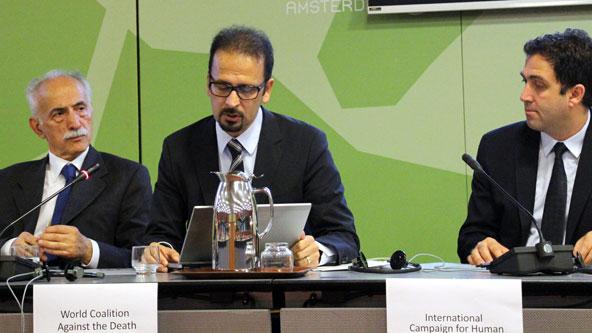
Article(s)
NGOs join forces to tackle capital punishment at Iran’s rights review
By Thomas Hubert, on 30 October 2014
Several World Coalition members are among organisations co-ordinating their efforts to help the international community put pressure on Iran over its use of the death penalty.
2014
Iran (Islamic Republic of)
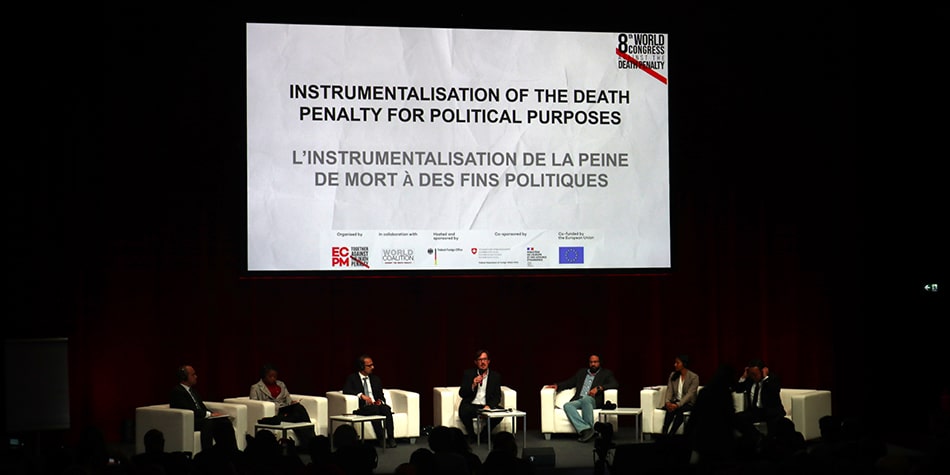
Article(s)
How the Death Penalty is Politicized: A Reflection on the 8th World Congress Against the Death Penalty
By Dunia Schaffa, on 27 January 2023
During the 8th World Congress Against the Death Penalty, in Berlin Germany, the phrase “the death penalty is being used as a political tool” was used frequently – in panels, in round tables, in speeches, even amongst the participants getting a coffee in between Congress events.
2023
Iran (Islamic Republic of)
United States
Article(s)
FIDH report on Vietnam: an update on death penalty statistics
on 19 September 2010
The FIDH and the Vietnam Committee on Human Rights released a new report, From Visions to Facts: Human Rights in Vietnam under its Chairmanship of ASEAN, on 16 August 2010.
2010
Drug Offenses
Moratorium
Viet Nam
Viet Nam
Article(s)
Taiwan activists battle in death penalty-triggered political crisis
on 19 March 2010
After Taiwan’s justice minister was forced to step down for not signing execution warrants, local and international abolitionists rushed in to restore a balanced debate and protect the country’s 44 death row inmates.
2010
Moratorium
Public Opinion
Taiwan
Taiwan

Article(s)
Notes on the Supreme Court Trial in the Chen Fu-hsiang Case: Life or Death Debates in the Style of ChatGPT
By Lin Tzu-Wei (Legal Director of the Taiwan Alliance to End the Death Penalty), on 14 July 2023
Article first published in april on TAEDP’s website Return of life or death debates Following the previous oral arguments on death penalty cases at the Supreme Court in 2021, another life or death debate took place in April this year. This time, I had the opportunity to attend the oral arguments of the “Chen Fu-hsiang […]
2023
Taiwan
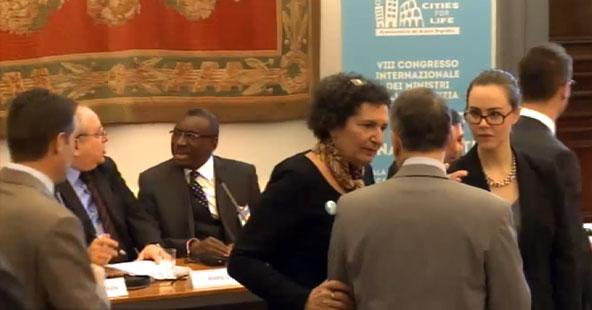
Article(s)
Justice ministers meet on the eve of Cities Against the Death Penalty
By Elizabeth Zitrin (World Coalition vice-president), in Rome, on 1 December 2013
More than 20 ministers of justice met in Rome for the annual conference on the abolition of the death penalty organised by the Community of Sant’Egidio and heard harrowing testimonies from courageous activists.
2013
Afghanistan
Belarus
Costa Rica
El Salvador
Italy
Philippines
Senegal
Switzerland
United States
Article(s)
Support grows for Davis as his execution is stayed
on 26 October 2008
Troy Davis’s execution was stayed on October 23, four days before he was scheduled to die, as activists took action on his behalf all over the world.
2008
United States
Article(s)
Mongolian president calls for abolition
on 18 January 2010
In a vibrant speech before the parliament on January 14, President Elbegdorj Tsakhia of Mongolia developed all the arguments put forward by the abolitionist community.
2010
Clemency
Mongolia
Moratorium
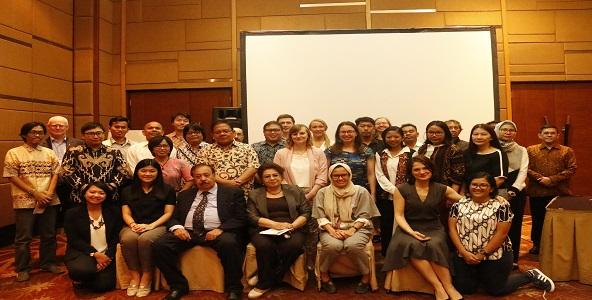
Article(s)
Dialogue on the death penalty during the 20th anniversary of the Reformasi
By Clémentine Etienne, on 27 June 2018
20 years after the end of the dictatorship, Indonesia is going through a period of legal changes and transition. What impact can abolitionist associations and NGOs working on the ground have in encouraging the actions of legal counsellors and civil society?
2018
Indonesia
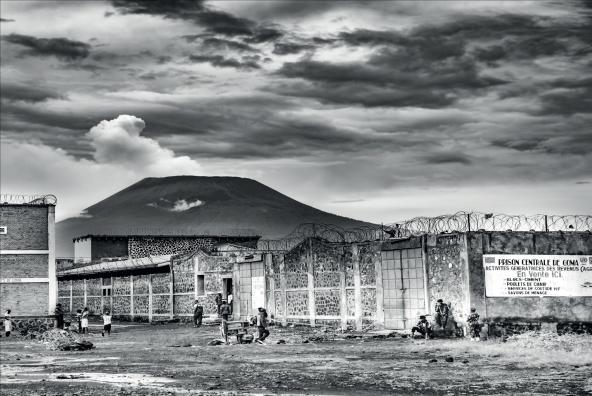
Article(s)
Death Sentences in the Democratic Republic of the Congo More Numerous than Previously Thought
By Bronwyn Dudley, on 12 March 2020
ECPM and CPJ published a report in December 2019 following a fact-finding mission in the Democratic Republic of the Congo (DRC) that took place earlier in the year. The results of the mission were astonishing – while the number of individuals sentenced to death was previously estimated to be 300 at most, the mission uncovered that there are at least 510 waiting execution. Liévin Ngondji, co-author of the report and President of CPJ, was in Paris in February 2020 to comment. Photo on the cover of the Report : 22 Oct 2015. Prison Centrale Goma, Democratic Republic of Congo copyright Ben Houdjik/ Shutterstock
2020
Cruel, Inhuman and Degrading Treatment and Punishment
Democratic Republic of the Congo
Fair Trial
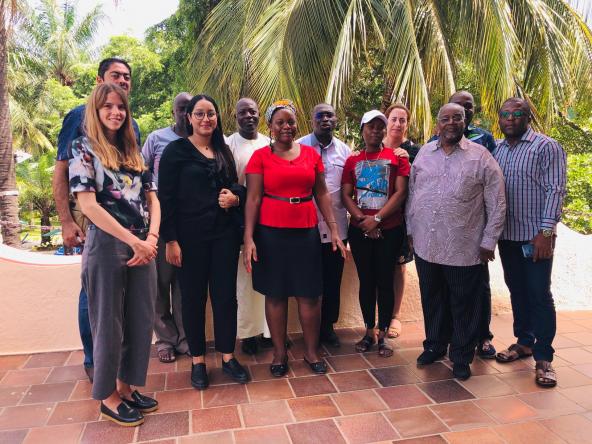
Article(s)
Children and the death penalty in Sub-Saharan Africa: NGO Forum and the 65th ACHPR Session
By Connie Numbi and Bronwyn Dudley, on 9 December 2019
The NGO Forum and the subsequent 65th ACHPR Session (African Commission on Human and People’s Rights) was held in Banjul, the Gambia from 17th October to the 10 November 2019.
2019
Juveniles
Article(s)
Finance and Administration Manager
By World Coalition Against the Death Penalty, on 14 May 2020
The World Coalition Against the Death Penalty recruits a Finance and Administration Manager for a full time permanent position starting as soon as possible.
2020
Member(s)
Union Chrétienne pour le Progrès et la Défense des Droits de l’Homme
on 30 April 2020
The Christian Union for Progress and Human Rights (UCPDHO) is a Christian-inspired association founded in Uvira, South Kivu (Democratic Republic of the Congo). The UCPDHO’s aim is to contribute to the restoration of peace in DRC, combat human rights’ violations, inform on death penalty laws and promote human rights in rural areas. Its objectives include […]
2020
Democratic Republic of the Congo
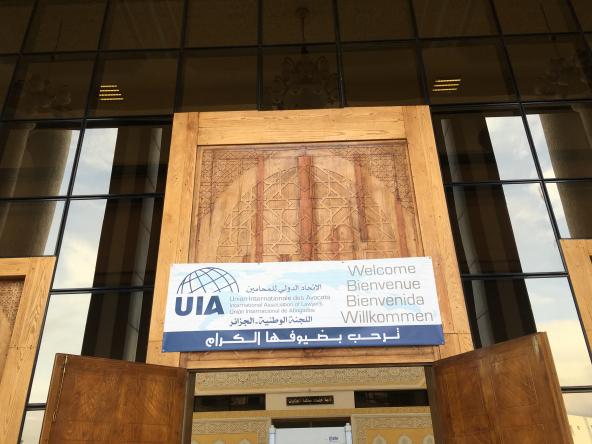
Article(s)
Algeria: it’s time to move from the moratorium to the abolition
By Florence Bellivier et Lorène du Crest, on 24 May 2017
Organized by the National Algerian Committee in partnership with the Boumerdes bar association, a seminar on the death penalty took place the 28th and 29th of April in Algeria. Gathering mainly academics, lawyers and representatives of the civil society, this seminar had the ambition to contribute to the “long process for the final abolition of the death penalty in Algeria”. The World Coalition Against the Death Penalty was represented by Florence Bellivier, Deputy Secretary General of the International Federation of the Leagues of Human Rights (FIDH).
2017
Algeria
Moratorium
Public Opinion

Member(s)
Avocats sans frontières Guinée – ASF Guinée
on 30 April 2020
Avocats sans frontières Guinée (Lawyers without Borders Guinea) is an NGO based in Guinea. Their mission is the promotion, the protection and the defense of Human rights. To promote, protect and preserve human rights in Guinea, their main actions are: – Legal assistance for those most vulnerable and those who lack access to resources – […]
2020
Guinea
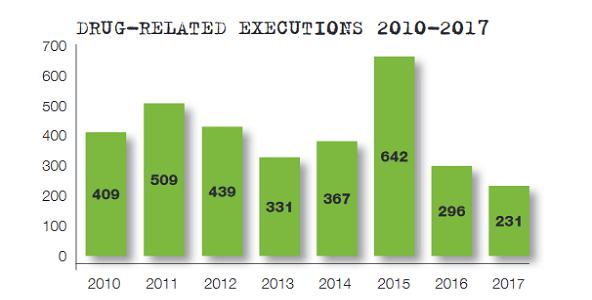
Article(s)
Iran Execution Trends Six Months After the New Anti-Narcotics Law
By Iran Human Rights (IHR), on 29 May 2018
On Monday, May 10, 2018, Iran Human Rights (IHR) reported the execution of Kiomars Nasouhi, a prisoner sentenced to death for drug offenses. This execution is the first drug-related execution registered by IHR since the latest amendment to the Anti-Narcotics Law was enforced on November 14, 2017.
2018
Iran (Islamic Republic of)
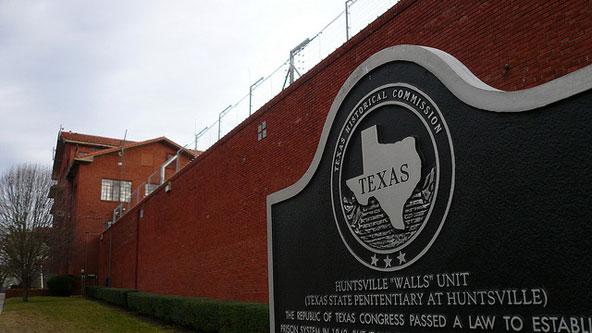
Article(s)
Texas maintains distance from abolitionist trend after 500th execution
By Léa Macarez, on 4 July 2013
52 year-old black woman Kimberly McCarthy was executed on 26 June and became the 500th prisoner put to death since Texas restored the death penalty in 1982.
2013
United States
Women
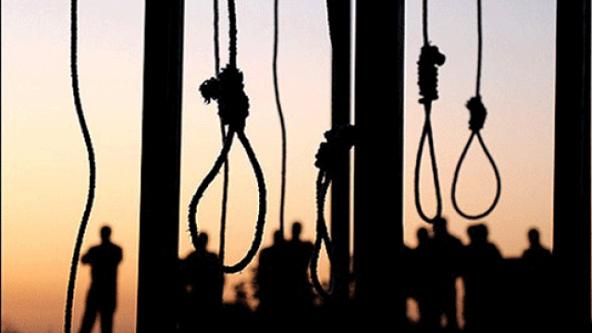
Article(s)
Joint statement from 48 coalitions, networks and human rights organizations from 12 Arab countries
By The Arab Coalition Against the Death Penalty, on 6 January 2016
The statement strongly condemns the execution of Nimr Baqir al-Nimr in Saudi Arabia and renewed its demand for Saudi Arabia to support the United Nations resolution on a global moratorium on the death penalty and to abolish the death penalty in national legislation.
2016
Saudi Arabia
Article(s)
Abolitionists block Nigerian executions
on 9 July 2010
Legal action by local activists and pressure from international organizations have succeeded in stopping plans by Nigeria’s authorities to execute hundreds of death row inmates.
2010
Fair Trial
Innocence
Legal Representation
Moratorium
Nigeria
Nigeria
Terrorism
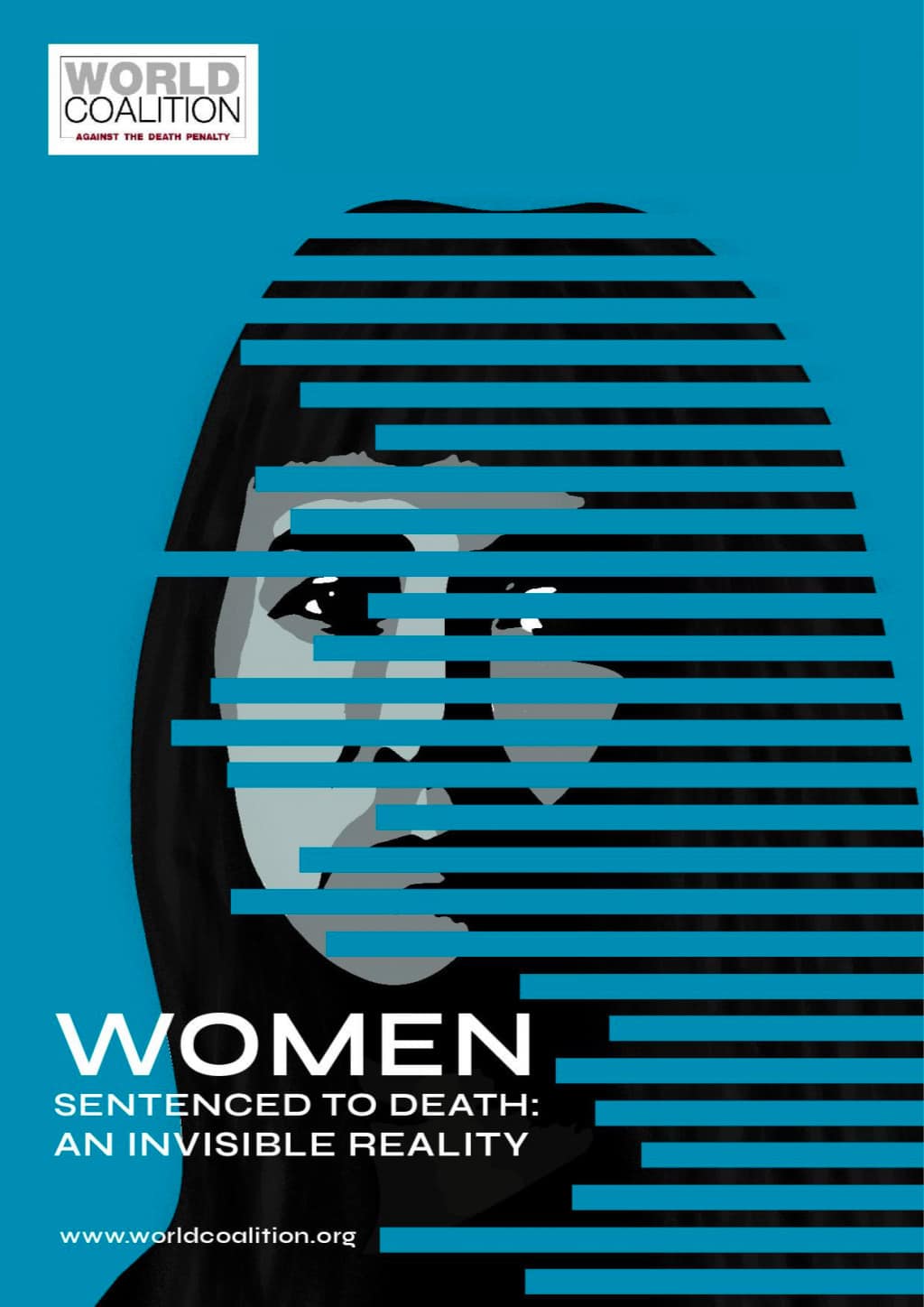
Making gender discrimination in capital punishment visible
on 6 March 2023
Understanding the link between gender discrimination and the death penalty – Women and the death penalty – Gender and sexual minorities and the death penalty Gender and the Death Penalty at the World Coalition – Strengthen the capacity of civil society organizations – Strengthen links with women’s, gender and sexual minority rights movements and organizations […]
2023
Gender
Women

Article(s)
Women sentenced to death: An invisible reality
By Advocates for Human Rights, International Federation of ACAT (Action by Christians for the Abolition of Torture), International Harm Reduction Association (IHRA), non-governmental organizations in special consultative status, on 4 August 2021
The World Coalition Against the Death Penalty and supporting member organizations welcome the annual full-day meeting to discuss the human rights of women under resolution 6/30.
2021
Drug Offenses
Fair Trial
Women
Article(s)
Africa takes a good look at the death penalty
on 5 August 2008
A working group of the African Commission on Human and People’s Rights is preparing a report on capital punishment on the continent.
2008
Eswatini
Moratorium
Article(s)
Joint Italian-Congolese effort against capital punishment
on 16 June 2009
World Coalition member organisation Hands Off Cain has launched a campaign targeting DRC’s opinion leaders. The government regards the renovation of the prison system as a prerequisite for abolition.
2009
Democratic Republic of the Congo
Italy
Moratorium
Article(s)
To escape the death penalty: be rich and kill a foreigner
on 24 February 2010
The racial origin of the victim and the social class of the criminal are key factors of discrimination.
2010
Bahrain
Fair Trial
Pakistan
Saudi Arabia
Article(s)
California Democratic Party endorses abolition of the death penalty
on 12 May 2010
One of the two main political parties in the largest US State has taken a formal stance against capital punishment – with help from local abolitionist organisations.
2010
Public Opinion
United States
Article(s)
World Forum an opportunity to gather abolitionists
on 4 July 2008
As the World Coalition held its general meeting in Nantes at the end of June, discussions focussed on the involvement of corporations and local authorities.
2008
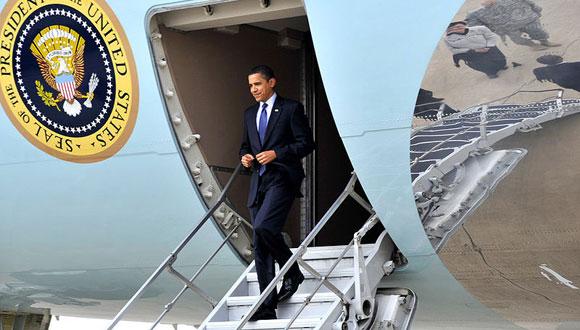
Article(s)
Puerto Rico pressures Obama to abolish unwanted federal death penalty
on 25 June 2011
In a letter addressed to President Obama, World Coalition member, the Puerto Rican Coalition Against the Death Penalty (PRCADP), has requested that the President abolish the application of the federal death penalty in Puerto Rico. The letter , signed by PRCADP’s General Coordinator Edgardo Roman-Espada, was sent to the White House before the President’s visit to the island on 14 June 2011.
2011
Fair Trial
Puerto Rico
United States
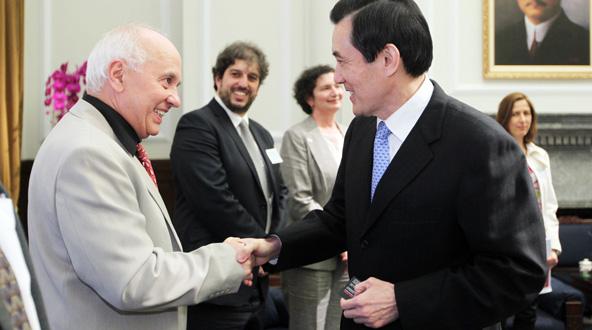
Article(s)
Taiwan visit tarnished by six executions
By Patrick Kamenka, on 25 April 2013
The meeting of the World Coalition Steering Committee on 12 and 13 April 2013 in Taipei, attended by twenty people, was tarnished the same week by the execution of six prisoners sentenced to death, even though high-level assurances had been given by the State with regard to reducing such barbarous acts.
2013
Death Row Conditions
Public Opinion
Taiwan
Taiwan
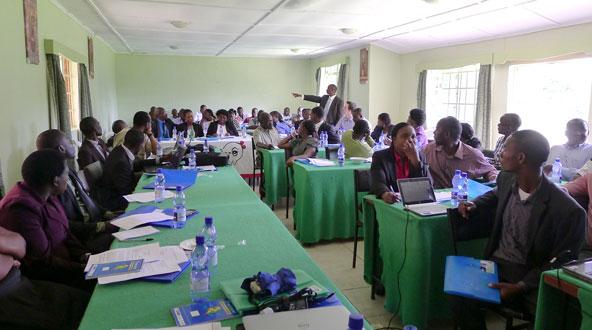
Article(s)
Mental health seminar takes Malawi a step closer to resentencings
By Emile Carreau, on 28 January 2015
The Malawi Human Rights Commission (MHRC) held a two-day seminar on mental health evaluations in preparation for the resentencing of nearly 200 individuals after their mandatory death sentences were deemed unconstitutional.
2015
Malawi
Malawi
Mental Illness
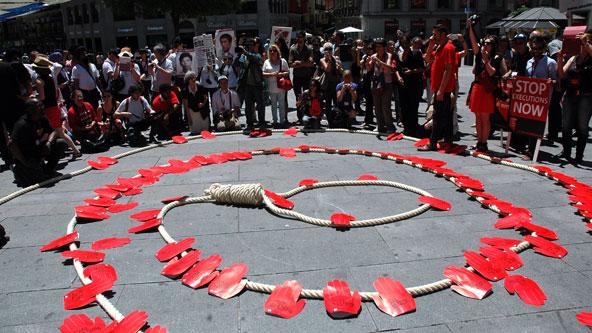
Article(s)
5th World Congress Against the Death Penalty
By Thomas Hubert & Tiziana Trotta, on 27 June 2013
The 5th World Congress Against the Death Penalty took place in Madrid between 12-15 June 2013. During three days, it united members of international civil society, politicians, and legal experts to elaborate abolitionist strategies for the years to come at the national, regional, and international levels, and to send out a clear message to the world: that universal abolition is essential for a world where progress and justice must prevail.
2013
Spain
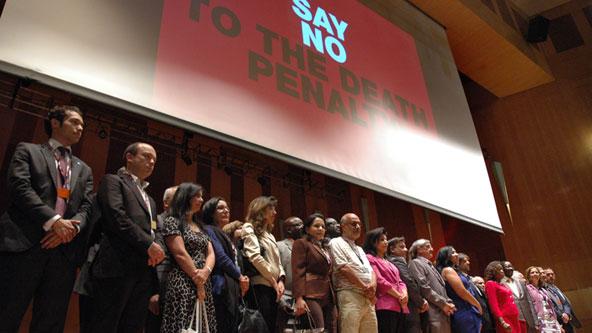
Article(s)
World Congress Against the Death Penalty
By Thomas Hubert & Tiziana Trotta, on 12 June 2013
The World Congress is taking place in Madrid between 12-15 June 2013. During three days, it unites members of international civil society, politicians, and legal experts to elaborate abolitionist strategies for the years to come at the national, regional, and international levels, and to send out a clear message to the world: that universal abolition is essential for a world where progress and justice must prevail.
2013
Spain
Article(s)
World Coalition AGM encourages US to join the abolitionist majority
on 22 June 2010
On June 12 and 13, the World Coalition Against the Death Penalty convened in San Francisco, marking the first international abolition meeting on US soil.
2010
United States
Article(s)
Évaluation finale externe d’un projet de 36 mois sur l’abolition de la peine de mort en Afrique
By FIACAT, on 13 March 2018
1. OrganisationLa Fédération internationale de l’Action des chrétiens pour l’abolition de la torture, la FIACAT, est une organisation internationale non gouvernementale de défense des droits de l’homme, créée en 1987, qui lutte pour l’abolition de la torture et de la peine de mort. La Fédération regroupe une trentaine d’associations nationales, les ACAT, présentes sur quatre […]
2018
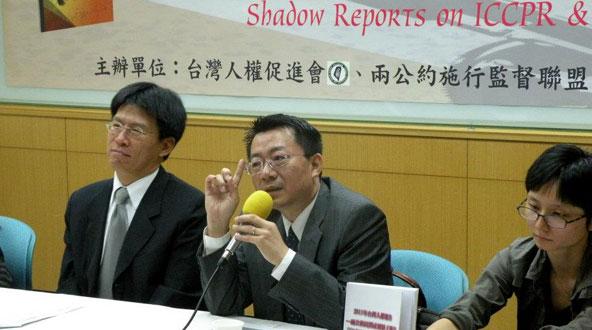
Article(s)
Death penalty at the heart of human rights review
By Thomas Hubert, on 5 February 2013
The Taiwanese authorities have been conducting a voluntary assessment of the human rights situation in the country, culminating in the visit of a panel of experts in late February. The World Coalition is taking part in the process.
2013
Cruel, Inhuman and Degrading Treatment and Punishment
Moratorium
Taiwan
Taiwan
Document(s)
Somebody’s Child: Amid the Lingering Trauma of Trump’s Executions, a New Project Brings Families to Federal Death Row
By The Intercept, on 15 February 2024
2024
Article
United States
More details See the document
Published on February 11, 2024.
In 2002, Ra’id was arrested alongside several other suspects following a botched bank robbery that left two people dead and another paralyzed. His co-defendants pointed to him as the mastermind, which Ra’id adamantly denied. “I did not take part in that atrocity,” he told the court following his trial. “I did not shoot and kill anyone.”
Newson attended his father’s sentencing hearing, along with his mother, Jeannie Gipson-Newson. A death sentence would be “devastating to my child,” she remembered testifying. But it felt futile. The jurors seemed to have made up their minds. In 2004, Ra’id was sentenced to die.
- Document type Article
- Countries list United States

